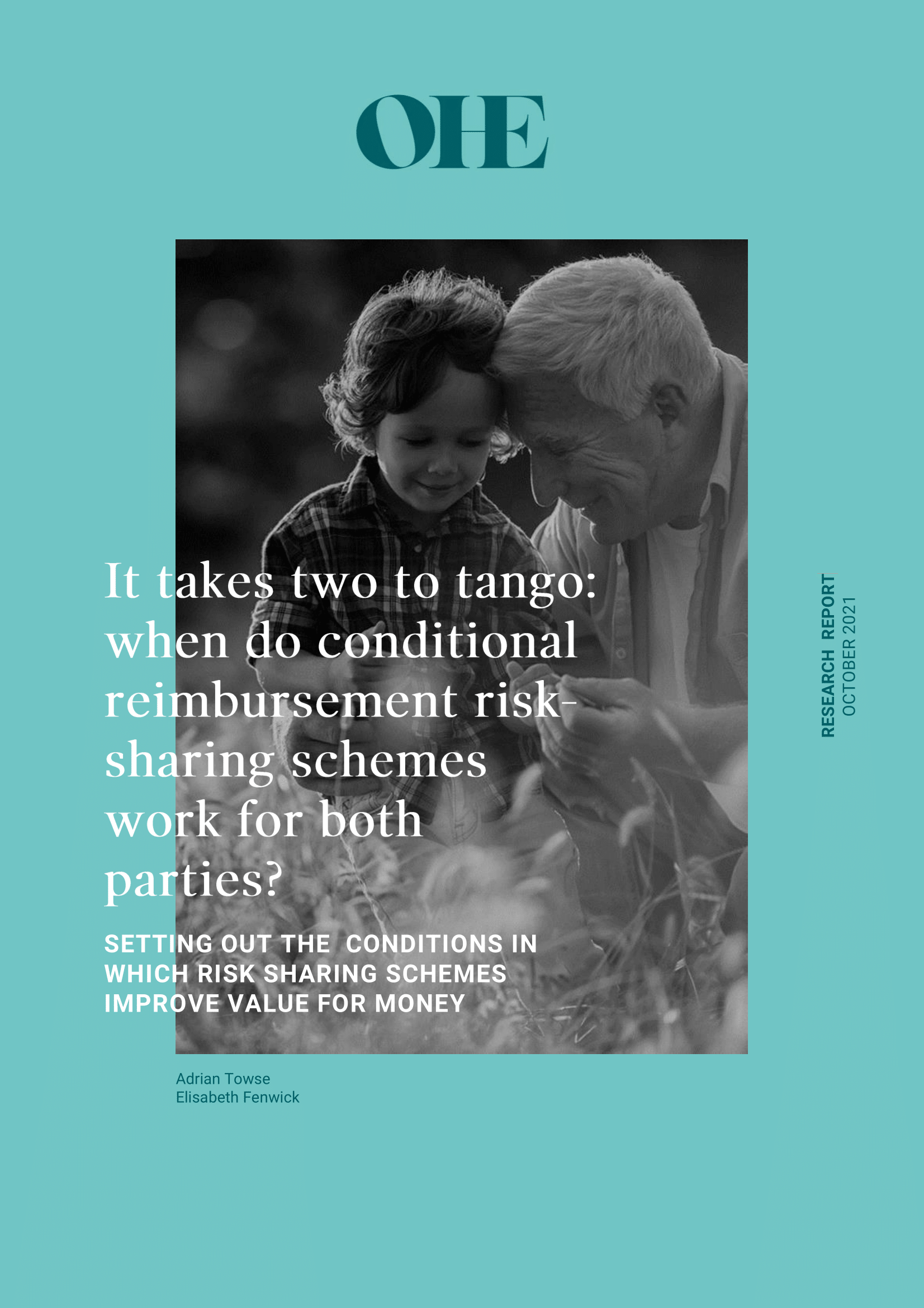Sign up to our newsletter Subscribe
It Takes Two to Tango: When do Conditional Reimbursement Risk-Sharing Schemes Work for Both Parties?

A selection of the posters and presentations delivered by OHE at the ISPOR 22nd Annual International Meeting in Boston, May 2017, are available below.
Adrian Towse participated in an invited issues panel, alongside: Peter Neumann (Tufts Medical Center) (Moderator), Lou Garrison (University of Washington and OHE Senior Visiting Fellow), Eleanor Perfetto (National Health Council, US) and Edmund Pezalla (Enlightenment BioConsult), that looked at: ISPOR’s special task force report on us value assessment frameworks: what does it say and is it helpful? The white paper’s key points and recommendations were presented, and its contributions and limitations discussed from the perspective of three key stakeholder groups: patients, payers, and the non-US audience. Adrian gave the non-US perspective.
Nancy Devlin, along with co-panellists Shelby Reed, F. Reed Johnson and Sachin Kamal-Bahl discussed: Moving Beyond the QALY in Patient-Centered Value Frameworks: But, in what direction? The panel explored different perspectives on the way that patients’ preferences and views could best be incorporated into value frameworks. Nancy argued that there is a case for systematically considering evidence patient preferences as part of HTA processes. However, ultimately HTA decisions involve weighing up both benefits to patients affected by the technology and benefits foregone to other patients so there remains an important role for societal preferences.
Paula Lorgelly presented three posters:
The OHE team were also actively involved in a number of ISPOR events held in Boston alongside the conference, including:
For more information on any of the above please contact the relevant author via our meet the team webpage.